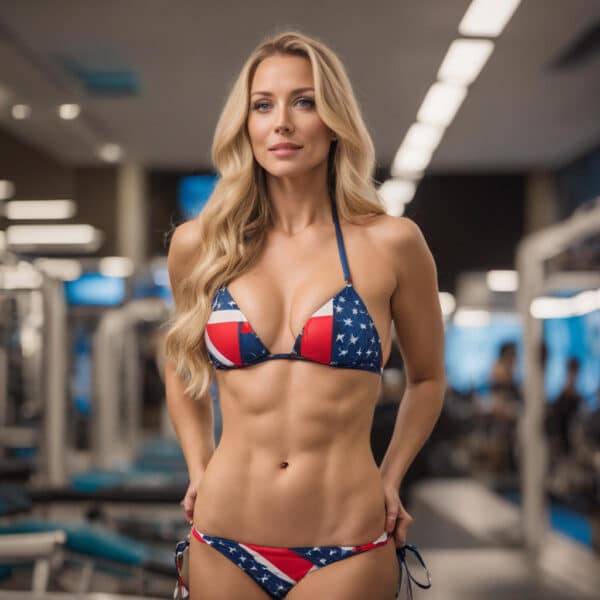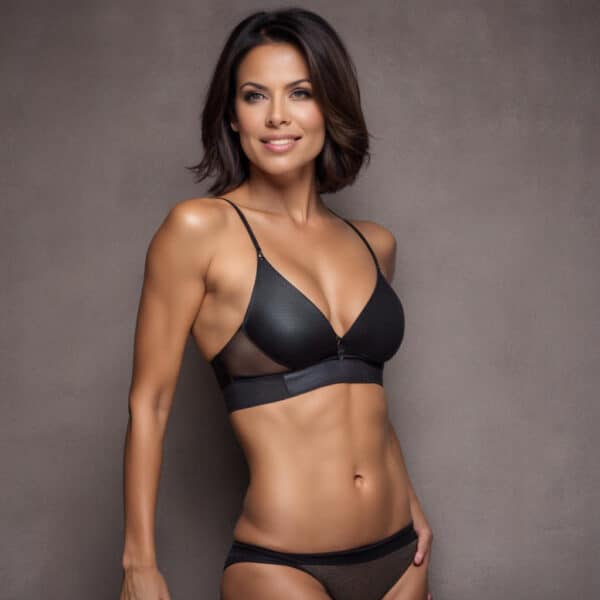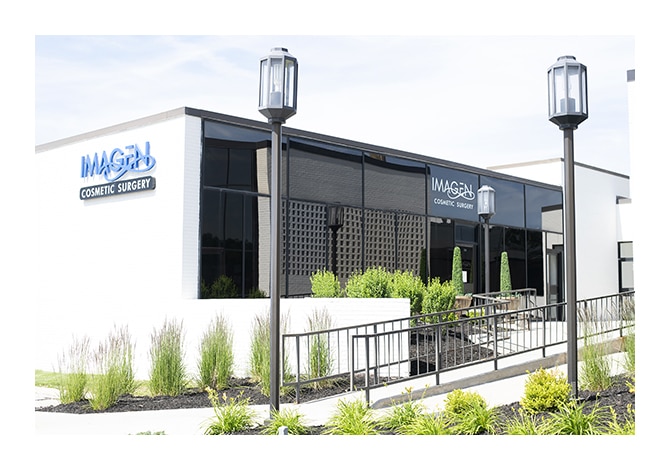Why settle for discomfort or self-consciousness when nipple reduction offers a straightforward solution? In the realm of cosmetic procedures, it’s a game-changer for many, promising not only aesthetic enhancement but also a boost in confidence. This procedure, though less talked about than others, can significantly impact one’s quality of life. Whether it’s fitting into clothes more comfortably or feeling more confident in intimate situations, understanding the ins and outs of nipple reduction could be your first step towards embracing a more contented self-image.
Societal Pressures and Body Image
Cultural Norms
Societal standards heavily influence our body image. Cultural pressure shapes what we see as the ideal body, leading to dissatisfaction. This pressure comes from everywhere: ads, movies, and even comments from family.
People often feel they must meet these standards to be accepted. This leads to negative feelings about their own bodies.
Media Influence
Social media amplifies this issue. Platforms are full of influencers promoting unattainable beauty ideals. Media pressure makes us compare ourselves to these images daily.
This constant exposure can distort our perception of a normal body. It pushes some towards drastic measures like cosmetic surgery.
Cosmetic Trends
In response to societal pressures, there’s a rise in cosmetic procedures. Nipple reduction is one such procedure gaining popularity. It highlights how deep the desire for acceptance goes.
Many opt for surgery hoping it will improve their social functioning and self-esteem. They believe it will make them happier and more accepted by peers.
Yet, this trend also shows the power of sociocultural norms over individual choices. It underscores the need for a broader conversation about beauty standards and acceptance.
Nipple Appearance Concerns
Size Matters
Many people worry about the size of their nipples. They fear they’re too big or too small compared to societal norms. This concern often stems from comparing oneself to others, whether in person or through media portrayals.
Individuals might feel their physical appearance doesn’t match the idealized forms often celebrated in society. This discrepancy can lead to a pronounced sense of discomfort and self-consciousness.
Shape and Symmetry
Another common concern revolves around the shape and symmetry of nipples. Many find theirs aren’t perfectly round or symmetric, causing distress. It’s crucial to understand that variations are natural and most breasts are not identical.
However, this understanding doesn’t always alleviate the worry that one’s body is somehow ‘wrong’ due to these differences. The quest for perceived perfection can overshadow the beauty of natural diversity.
Intimacy and Clothing
Concerns about nipple appearance intensify in intimate relationships and clothing choices. Some feel anxious about how partners will perceive them, fearing judgment or rejection based on their nipple size or shape.
Similarly, certain clothes might make individuals more aware of their breasts’ appearance, pushing them towards garments that conceal rather than express personal style. This limitation can significantly impact one’s confidence and comfort in daily life.
Understanding Nipple Reduction Surgery
Surgical Procedure
Nipple reduction surgery is a meticulous process. It begins with an initial consultation to discuss goals and expectations. The surgeon then marks the area, ensuring precision during the operation. Local anesthesia is commonly used, making the procedure relatively painless.
After the surgery, patients can usually return home the same day. Recovery involves minimal discomfort managed with prescribed medication. Most people resume normal activities within a week, although strenuous exercise should be avoided for up to six weeks.
Risks and Complications
Like any surgical intervention, nipple reduction carries certain risks. These include infection, bleeding, and adverse reactions to anesthesia. There’s also a possibility of scarring and changes in nipple sensation.
Patients must follow their surgeon’s aftercare instructions closely to minimize these risks. Regular check-ups help ensure a smooth recovery process.
Ideal Candidates
Not everyone is suited for nipple reduction surgery. Ideal candidates are those experiencing significant distress over their nipple size or shape due to aesthetic concerns or physical discomfort.
They should be in good overall health without underlying conditions that might complicate surgery or healing. Individuals considering this option often seek relief from self-consciousness or desire clothing to fit more comfortably.
Psychological Effects of Surgery
Positive Impact
Nipple reduction, like other forms of plastic surgery, can have a profound positive psychological impact. Many individuals experience increased self-esteem and confidence after achieving their desired physical appearance. This boost in self-perception often leads to improved social interactions and personal satisfaction.
They feel more comfortable in their skin. This comfort translates into various aspects of life, including relationships and professional endeavors.
Regrets
However, not all outcomes are positive. Some individuals may face regrets or dissatisfaction after the procedure. The reasons vary from unrealistic expectations to unforeseen physical consequences.
It’s crucial for patients to have thorough pre-surgery consultations. These discussions help set realistic goals and prepare for possible emotional responses post-surgery.
Expectations & Support
Setting realistic expectations is key to a satisfactory outcome. Patients should understand the limitations of nipple reduction surgery and its potential impact on their lives.
Professional psychological support plays a vital role both before and after surgery. It helps manage expectations and address any post-operative feelings of regret or dissatisfaction. Support from qualified professionals ensures that patients navigate through their emotional journey with care.
Breaking Free from Beauty Norms
Critical Thinking
Encouraging critical thinking about beauty standards is vital. These norms often limit individual expression and can lead to unnecessary procedures, such as nipple reduction surgery. By questioning these standards, many women begin to see the arbitrary nature of beauty trends.
They recognize that what’s considered attractive changes over time and varies greatly across cultures. This realization can be liberating, allowing individuals to embrace their natural bodies without feeling pressured to conform.
Personal Stories
Some have boldly shared their stories, becoming beacons of inspiration for others. For instance, a mother who chose not to undergo cosmetic surgery after childbirth celebrated her body’s ability to give birth, seeing it as a badge of honor rather than an imperfection.
Another example includes women who proudly showcase their natural selves in street shops or on social media, challenging the prevailing beauty narrative. Their courage encourages others to rethink what it means to be beautiful.
Rejecting Standards
Rejecting unrealistic beauty standards involves both personal and collective action. It starts with self-acceptance and extends to supporting others in their journey towards body positivity.
Strategies include engaging in positive self-talk, curating social media feeds to include diverse body types, and advocating for broader representation in the media. Literature search and review reveal that increasing exposure to varied definitions of beauty helps dismantle harmful stereotypes.
Strategies for Self-Acceptance
Body Image
It’s crucial to embrace our uniqueness. To foster a healthier body image, start by listing qualities you appreciate about yourself that aren’t appearance-based. This exercise shifts focus from physical attributes to personal strengths and talents.
Reflect on media consumption too. Limit exposure to content that makes you feel inadequate and seek out positive influences instead. Remember, the diversity of human bodies is normal and beautiful.
Mindfulness
Mindfulness practices can significantly improve self-acceptance. Daily meditation encourages living in the moment and reduces negative self-talk. It helps in acknowledging thoughts without judgment.
Try body scanning as well. This technique involves paying attention to different parts of your body without critique, fostering gratitude for its capabilities rather than focusing on perceived flaws.

Support Networks
Finding communities that champion body positivity can be transformative. These groups offer validation and understanding, making it easier to internalize acceptance and appreciation for one’s body.
Online forums or local meetups focused on self-love provide spaces where individuals can share experiences and strategies for overcoming insecurities, including concerns about nipple size or shape.
Promoting Self-Confidence Post-Surgery
Personal Goals
Focusing on personal goals and motivations is crucial after nipple reduction surgery. It’s about what you want for yourself, not what others expect.
Setting small, achievable goals can lead to significant boosts in self-esteem. Celebrate each milestone, no matter how minor it may seem.
Positive Self-Image
Building a positive self-image post-surgery involves embracing the changes your body has undergone. Remember, this step was taken for your well-being and comfort.
Reframing thoughts positively can greatly impact how you view yourself. Instead of focusing on imperfections, concentrate on the aspects of your appearance that make you feel proud.
Engaging Activities
Engaging in activities and hobbies post-surgery reinforces a sense of self-worth and accomplishment. These could be as simple as reading or as engaging as sports.
They provide an outlet for creativity and stress relief, which are essential for maintaining mental health during recovery.
Achieving a Healthier Body Image
Self-Care Focus
Comprehensive self-care plays a crucial role in fostering a positive body image. It encompasses mental, emotional, and physical health. By addressing each aspect, individuals can build resilience against body image issues.
Self-care involves regular physical activity and balanced nutrition. These actions contribute to a healthier body shape and low body fat levels. They also promote feelings of well-being.
Realistic Goals
Setting personal health goals that are realistic is vital. These goals should focus on health rather than appearance.
Goals might include improving stamina or increasing strength. Achieving these can boost confidence and foster a more positive view of one’s body. This approach helps shift the focus from societal beauty standards to personal well-being.
Balanced Lifestyle
A balanced lifestyle is key to maintaining body appreciation. It means not just focusing on diet or exercise but also ensuring enough rest and engaging in activities that bring joy.
This balance helps mitigate the effects of societal pressures about having an athletic or feminine body. It encourages individuals to value their unique qualities over conforming to unrealistic ideals.
Closing Thoughts
Navigating the complex world of body image and beauty standards isn’t easy, but understanding your options, like nipple reduction surgery, is a step towards embracing your true self. It’s clear that societal pressures can deeply impact how you see yourself, yet the journey towards self-acceptance and promoting self-confidence post-surgery shows there’s light at the end of the tunnel. Surgery isn’t just a physical transformation; it’s a psychological one too, offering a path to break free from beauty norms and achieve a healthier body image.
Remember, your value isn’t measured by your appearance. Embrace strategies for self-acceptance and let your confidence shine from within. If you’re considering nipple reduction or any form of body modification, seek advice from qualified professionals who understand your needs. Let’s start celebrating our bodies in all their diversity. Ready to take the next step? Reach out to a trusted expert today and begin your journey towards loving the skin you’re in.
Frequently Asked Questions
What is nipple reduction surgery?
Nipple reduction surgery is a cosmetic procedure aimed at reducing the size or changing the shape of the nipples to achieve a desired appearance.
Who typically seeks out nipple reduction surgery?
Individuals who feel self-conscious about their nipple size or shape, often due to societal pressures and personal body image concerns, may seek this surgery.
How can nipple reduction surgery impact psychological well-being?
Undergoing the procedure can significantly boost self-esteem and body confidence for many, helping them feel more comfortable in their skin.
Is there a way to embrace natural body variations without surgery?
Yes, strategies like focusing on self-acceptance and challenging beauty norms can empower individuals to embrace their natural bodies confidently.
Can undergoing nipple reduction surgery help with achieving a healthier body image?
For some, aligning their physical appearance with their personal ideals through surgery can be a step towards fostering a positive and healthy body image.
What are some tips for promoting self-confidence after undergoing cosmetic surgery?
Post-surgery, engaging in positive self-talk, setting realistic expectations, and surrounding oneself with supportive communities can enhance self-confidence.





